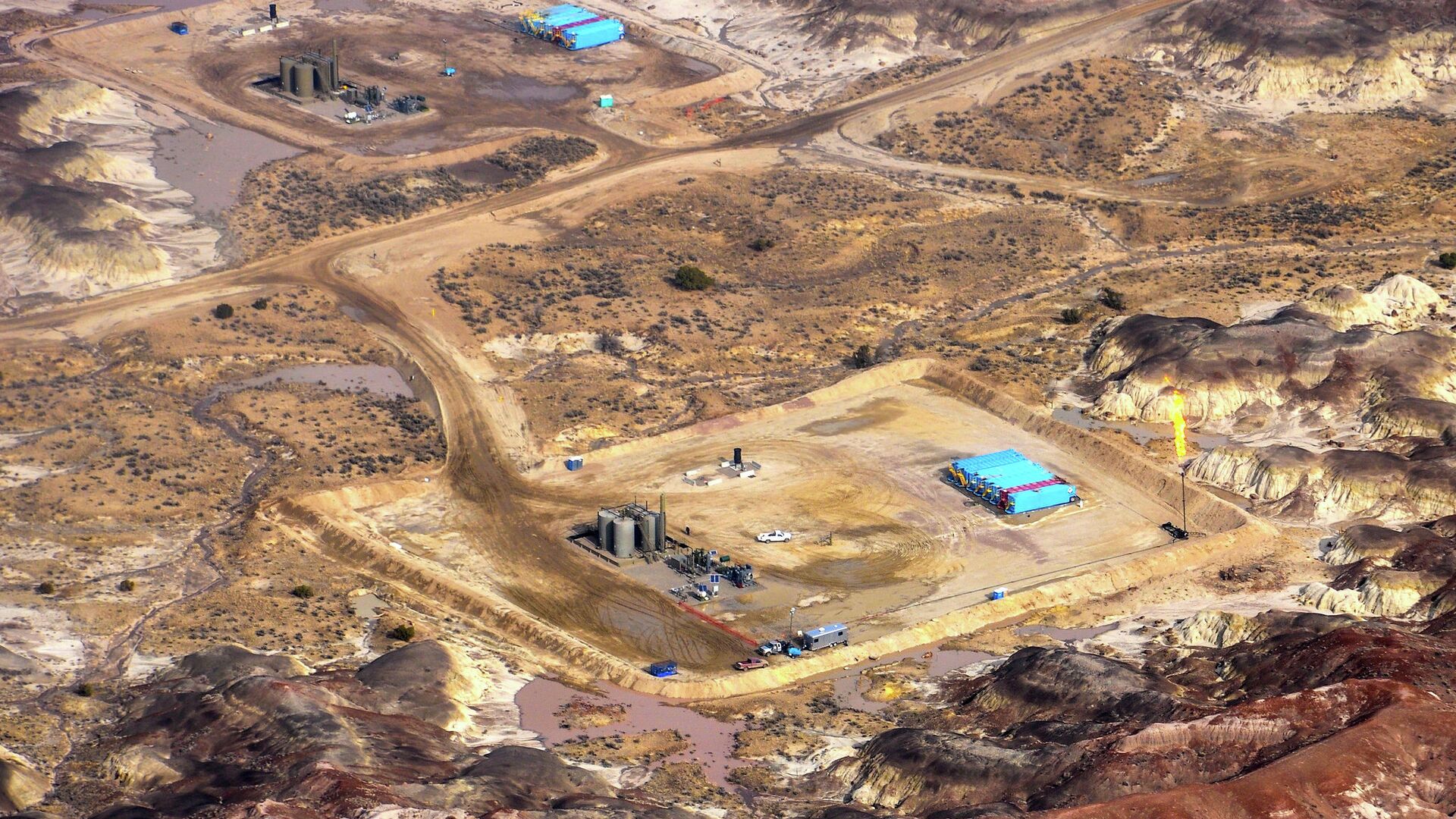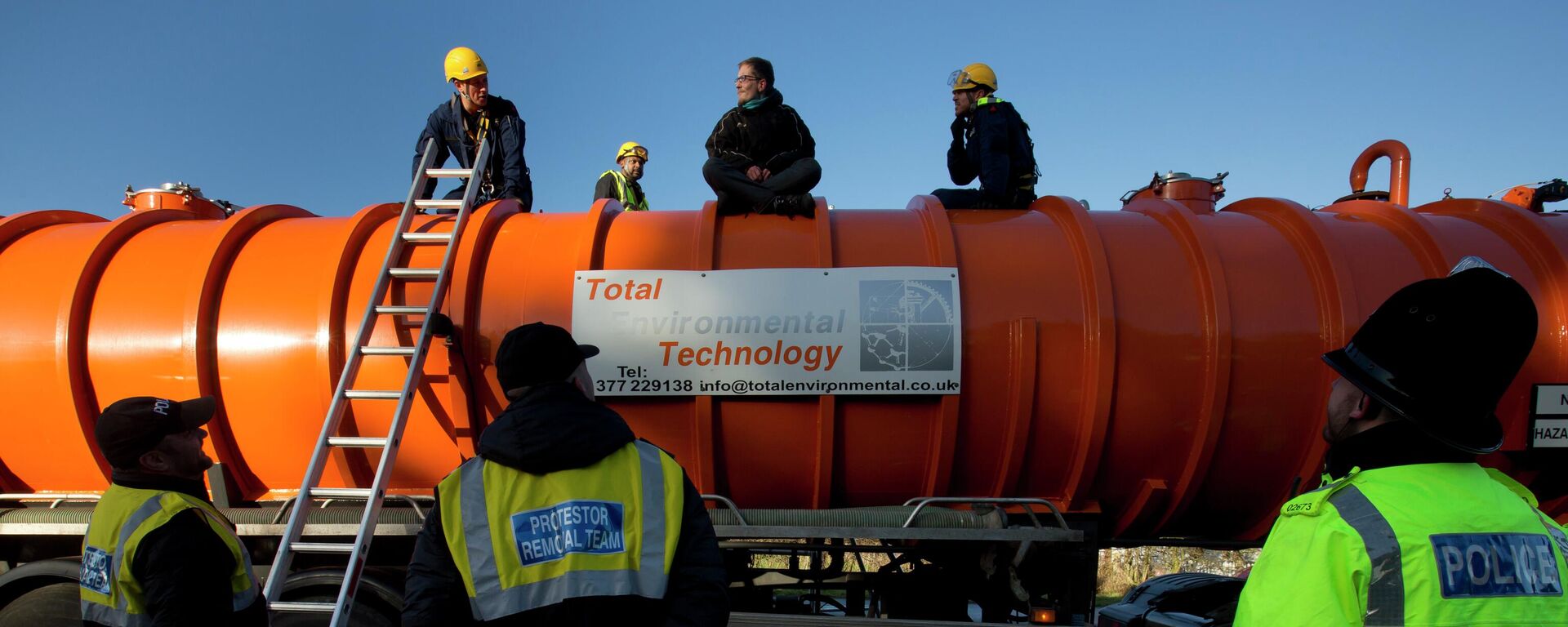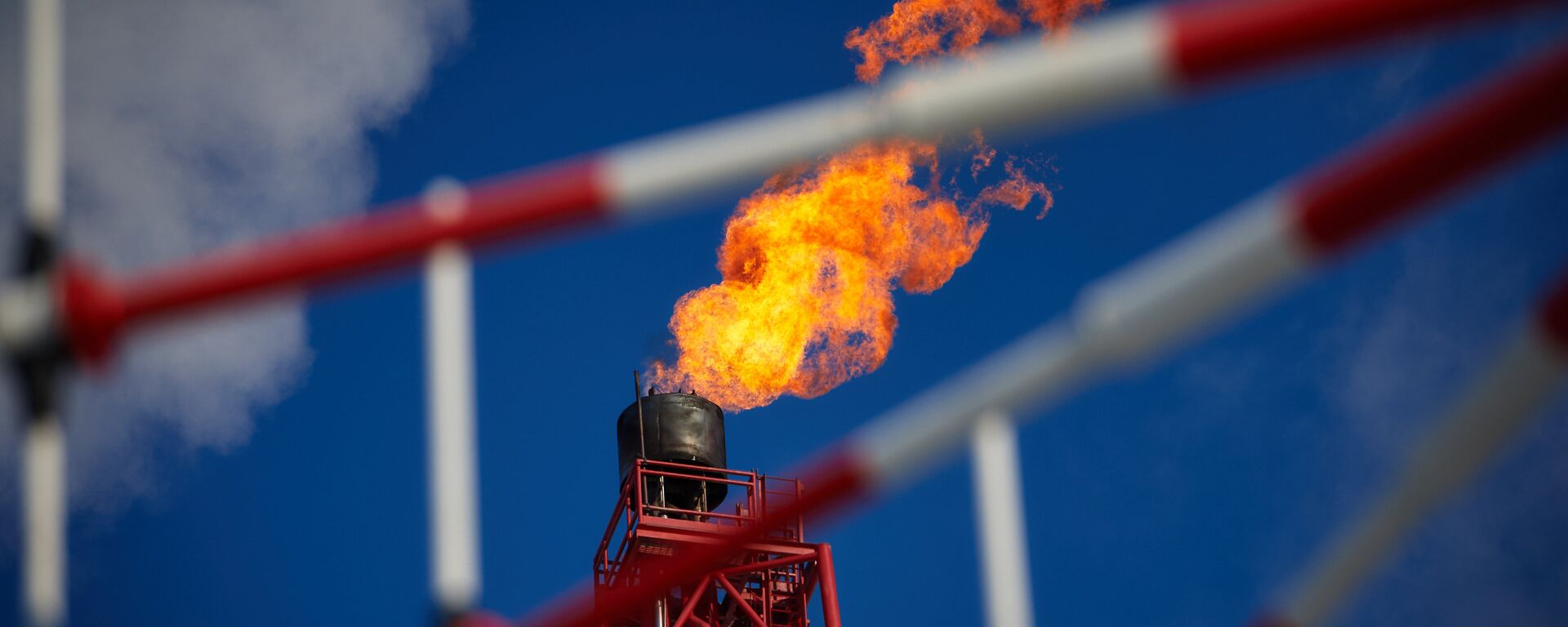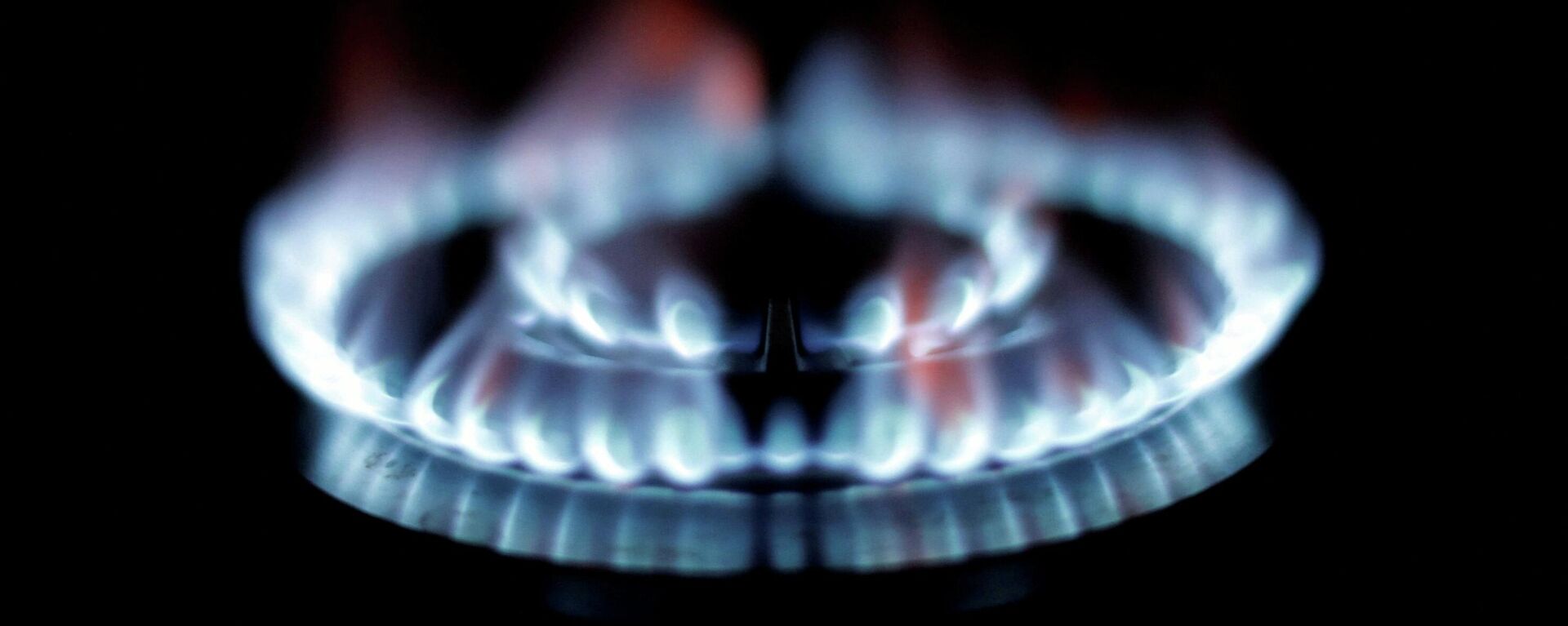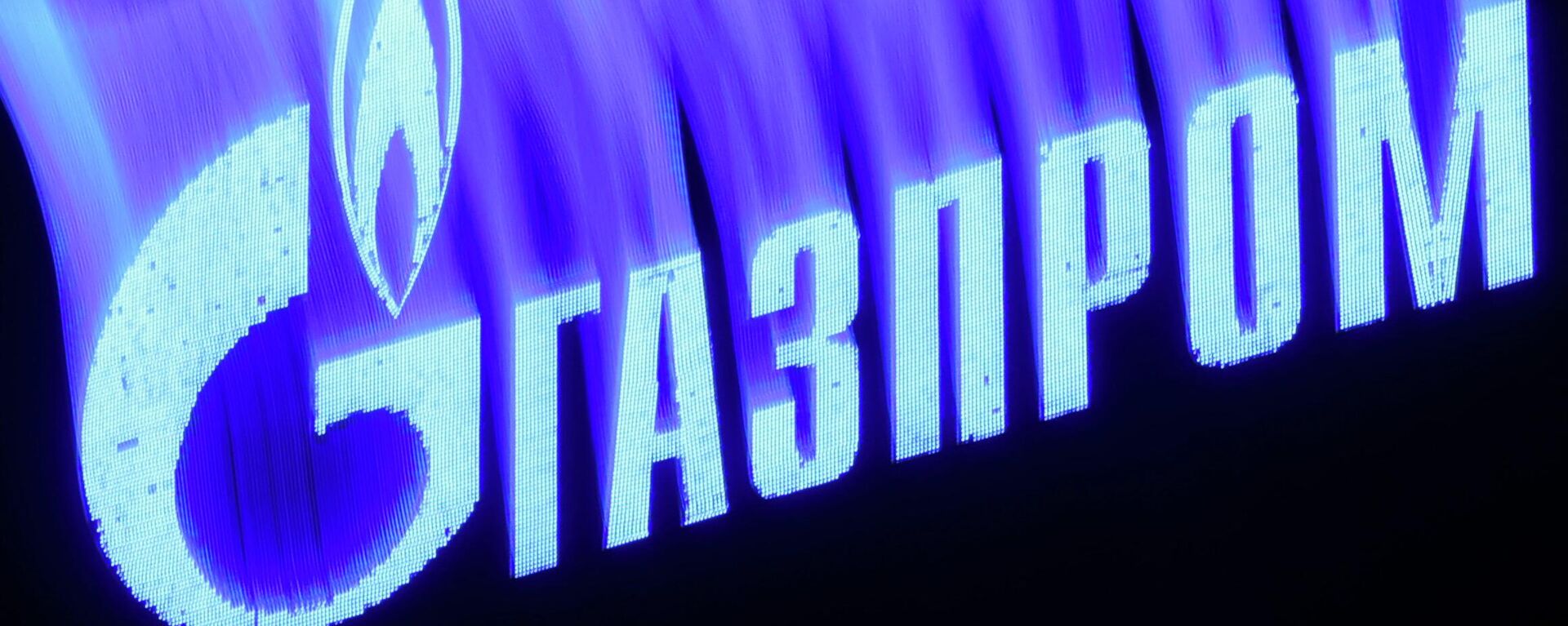https://sputnikglobe.com/20220407/us-shale-lng-firms-quietly-meet-with-european-officials-to-try-to-replace-russian-supplies-report-1094565085.html
US Shale, LNG Firms Quietly Meet With European Officials to Try to Replace Russian Supplies: Report
US Shale, LNG Firms Quietly Meet With European Officials to Try to Replace Russian Supplies: Report
Sputnik International
Russia accounts for about 40 percent of the European countries’ natural gas needs, with some nations dependent on Russia for over 90 percent of supplies. After... 07.04.2022, Sputnik International
2022-04-07T17:12+0000
2022-04-07T17:12+0000
2022-04-07T18:46+0000
gas
russia
europe
america
https://cdn1.img.sputnikglobe.com/img/102355/25/1023552597_0:104:2048:1256_1920x0_80_0_0_d1bda495720bf17547c2ec4cad15fca7.jpg
US shale gas and LNG producers have met with a delegation of European officials to discuss the possibility of expanding US gas exports to Europe to replace Russian gas, but warned that the necessary infrastructure won’t be up and running until at least 2025, Reuters reports, citing a person said to be familiar with the matter.At least twelve US shale gas executives are said to have hobnobbed with European officials in Texas on Wednesday as they toured the Golden Pass LNG export infrastructure project in Sabine Pass and met with producers in Houston, Fred Hutchison, the head of industry trade group LNG Allies told the news agency.“The capacity challenges in 2022 are great but the opportunities in a few years are really terrific,” Hutchison assured, referring to the difficulties faced by US producers, including costly long-term investments, particularly for LNG – which requires special infrastructure to supercool it to liquid form and condense it to assure ease of storage and transport. Russian energy officials estimate that US LNG is up to 40 percent more expensive than Russia’s pipeline supplies.US energy firms are lobbying lawmakers in Washington to assist in the construction of new LNG export infrastructure, with Pioneer Natural Resources head Scott Sheffield recently saying the US requires new LNG facilities in the country’s northeast to ship its energy across the ocean.Well-Laid PlansThe EU announced plans to cut down on its purchases of Russian gas by more than sixty percent by the end of 2022. Energy experts have dismissed these plans as unrealistic, citing the extent to which European countries currently depend on Russia for their needs.Russian gas giant Gazprom produced over 540 billion cubic meters (bcm) of gas last year, more than BP, Chevron, ExonnMobil, Shell and Saudi Aramco combined. 168 bcm of that was delivered to customers in Europe. The only company that came anywhere Gazprom’s output was the National Iranian Oil Company, which produced 291 bcm, but consumed 280 bcm of that domestically.On Thursday, Wood Mackenzie consultancy head of gas research Giles Farrer told FT that replacing the Russian-supplied gas would be literally “impossible,” since “there is nothing else out there” and most existing gas production projects around the world are already operating at maximum capacity or close to it.European countries dependent on gas spot prices began to feel the limits in the global gas market beginning last fall, before the Ukraine crisis hit, as regional buyers and buyers in Asia competing for limited supplies after a cold winter and spring of 2020-2021, spending prices skyrocketing.A recent analysis by Bernstein Research, an NY-based asset management company, showed that replacing Russian pipeline gas with LNG would require about 112 million tonnes of the fuel source – about 1/3 of the total existing LNG market.The US has so far promised to deliver 15 billion cubic meters of gas to the Europeans to offset losses of Russian supplies. US producers currently export about 71 million tonnes of gas (105 bcm), but hope to increase that figure to 200 million tonnes+ by the end of the decade. QatarEnergy is looking to increase its LNG export capacity to 100 million tonnes through the North Field, up from the 86 bcm exported in 2021, but isn’t expected to get there until 2026.Mutual InterdependenceNearly ¾ of Russia’s natural gas supplies were sold to European customers in 2021, with large buyers like Germany, Italy and France depending on Russian supplies for 49, 46 and 24 percent of their total consumption, respectively. Russia has also been ramping up its energy deliveries to Asian buyers, particularly China, India and Pakistan, and Moscow and Beijing recently agreed on the construction of a new pipeline by 2025 which would allow Russia to pump up to 50 bcm of natural gas to the Asian giant.
https://sputnikglobe.com/20220405/uk-energy-secretary-orders-review-of-fracking-ban-amid-self-inflicted-gas-crisis-1094504201.html
https://sputnikglobe.com/20220401/austria-hungary-say-no-substitute-to-russian-gas-as-germanys-basf-warns-of-worst-crisis-since-wwii-1094388944.html
https://sputnikglobe.com/20220403/live-updates-ukrainian-nationalists-take-food-away-from-donbass-civilians-lpr-ombudsperson-says-1094435534.html
https://sputnikglobe.com/20220405/hungarian-company-mvm-discussing-with-gazprom-gas-payments-in-rubles-russian-ambassador-says-1094485751.html
Sputnik International
feedback@sputniknews.com
+74956456601
MIA „Rossiya Segodnya“
2022
News
en_EN
Sputnik International
feedback@sputniknews.com
+74956456601
MIA „Rossiya Segodnya“
Sputnik International
feedback@sputniknews.com
+74956456601
MIA „Rossiya Segodnya“
gas, europe, america
US Shale, LNG Firms Quietly Meet With European Officials to Try to Replace Russian Supplies: Report
17:12 GMT 07.04.2022 (Updated: 18:46 GMT 07.04.2022) Russia accounts for about 40 percent of the European countries’ natural gas needs, with some nations dependent on Russia for over 90 percent of supplies. After the start of the Russian military operation in Ukraine, some EU members vowed to halt buying Russian natural gas completely, while others have vowed not to pay for supplies in rubles.
US shale gas and LNG producers have met with a delegation of European officials to discuss the possibility of expanding US gas exports to Europe to replace Russian gas, but warned that the necessary infrastructure won’t be up and running until at least 2025, Reuters
reports, citing a person said to be familiar with the matter.
At least twelve US shale gas executives are said to have hobnobbed with European officials in Texas on Wednesday as they toured the Golden Pass LNG export infrastructure project in Sabine Pass and met with producers in Houston, Fred Hutchison, the head of industry trade group LNG Allies told the news agency.
The US companies involved in the talks reportedly included executives from Chesapeake Energy, Coterra Energy, EOG Resources and EQT Corp. On the European side were senior diplomats, including foreign affairs and economy ministers, as well as private commercial buyers, from countries including France, Germany, the UK, Hungary, Bulgaria, Latvia and Estonia.
“The capacity challenges in 2022 are great but the opportunities in a few years are really terrific,” Hutchison assured, referring to the difficulties faced by US producers, including costly long-term investments, particularly for LNG – which requires special infrastructure to supercool it to liquid form and condense it to assure ease of storage and transport. Russian energy officials estimate that US LNG is up to
40 percent more expensive than Russia’s pipeline supplies.
US energy firms are lobbying lawmakers in Washington to assist in the construction of new LNG export infrastructure, with Pioneer Natural Resources head Scott Sheffield recently saying the US requires new LNG facilities in the country’s northeast to ship its energy across the ocean.
The EU announced plans to cut down on its purchases of Russian gas by more than sixty percent by the end of 2022. Energy experts have
dismissed these plans as unrealistic, citing the extent to which European countries
currently depend on Russia for their needs.
Russian gas giant Gazprom produced over 540 billion cubic meters (bcm) of gas last year, more than BP, Chevron, ExonnMobil, Shell and Saudi Aramco combined. 168 bcm of that was delivered to customers in Europe. The only company that came anywhere Gazprom’s output was the National Iranian Oil Company, which produced 291 bcm, but consumed 280 bcm of that domestically.
On Thursday, Wood Mackenzie consultancy head of gas research Giles Farrer
told FT that replacing the Russian-supplied gas would be literally “impossible,” since “there is nothing else out there” and most existing gas production projects around the world are already operating at maximum capacity or close to it.
European countries dependent on gas spot prices began to feel the limits in the global gas market beginning
last fall, before the Ukraine crisis hit, as regional buyers and buyers in Asia competing for limited supplies after a cold winter and spring of 2020-2021, spending prices skyrocketing.
A recent analysis by Bernstein Research, an NY-based asset management company, showed that replacing Russian pipeline gas with LNG would require about 112 million tonnes of the fuel source – about 1/3 of the total existing LNG market.
The US has so far promised to deliver 15 billion cubic meters of gas to the Europeans to offset losses of Russian supplies. US producers currently export about 71 million tonnes of gas (105 bcm), but hope to increase that figure to 200 million tonnes+ by the end of the decade. QatarEnergy is looking to increase its LNG export capacity to 100 million tonnes through the North Field, up from the 86 bcm exported in 2021, but isn’t expected to get there until 2026.
Nearly ¾ of Russia’s natural gas supplies were sold to European customers in 2021, with large buyers like Germany, Italy and France depending on Russian supplies for
49, 46 and 24 percent of their total consumption, respectively. Russia has also been ramping up its energy deliveries to
Asian buyers, particularly China, India and Pakistan, and Moscow and Beijing
recently agreed on the construction of a new pipeline by 2025 which would allow Russia to pump up to 50 bcm of natural gas to the Asian giant.
